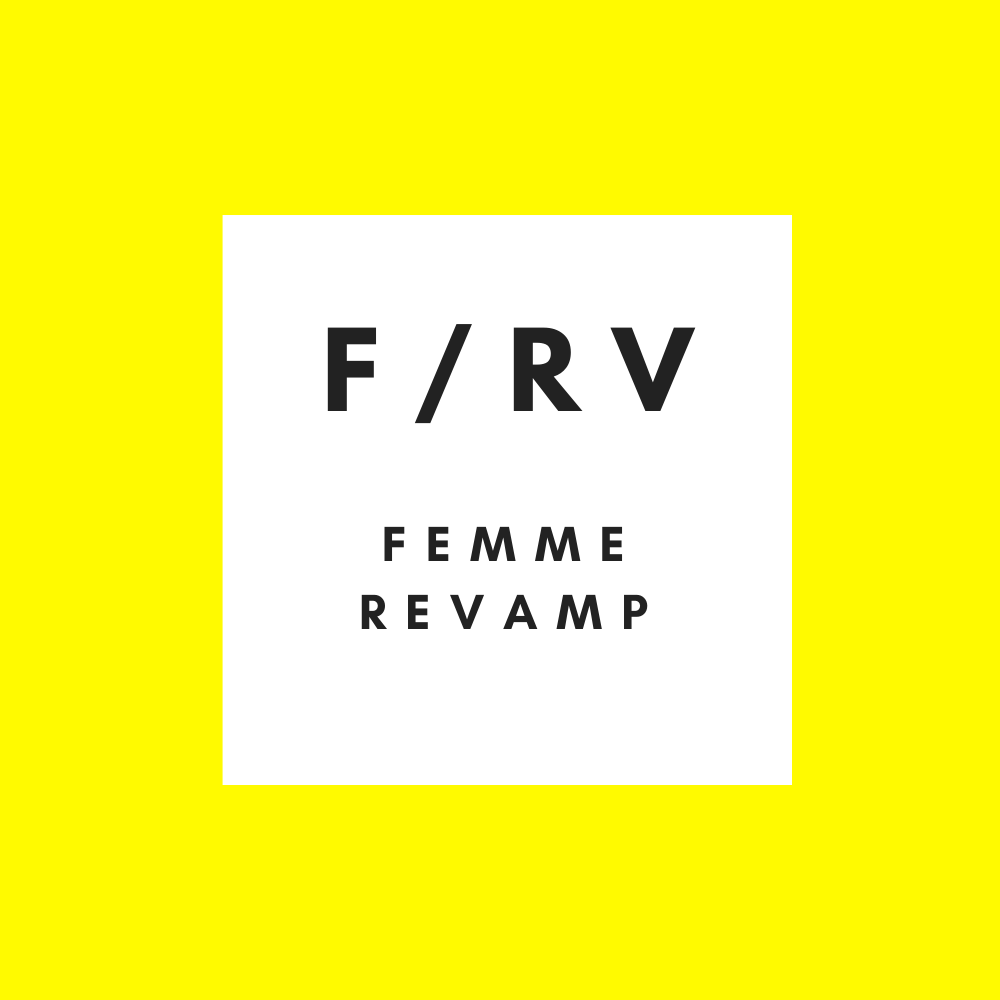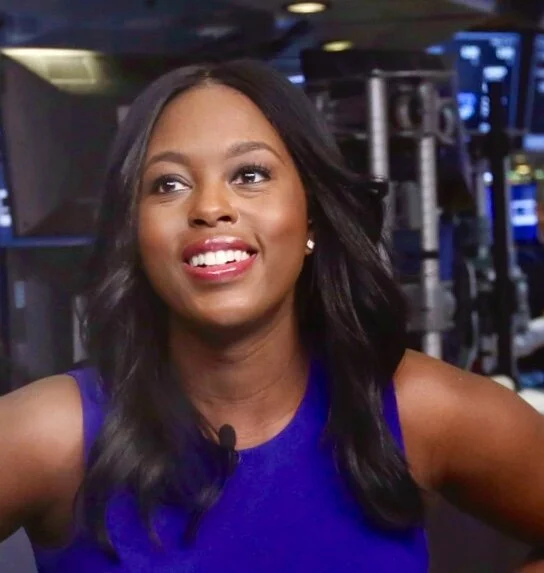Kori Hale
Kori Hale is the CEO and Co-Founder of CultureBanx, a digital news platform redefining business and tech news for minorities through music. Her online platform delivers high quality content focused on market-driven stories, innovative products and services that culture leads the way in transforming. Prior to starting CultureBanx, Kori was part of the launch team for digital media millennial news company Cheddar.
She has the distinct privilege of being the first black woman to anchor a daily news show from the floor of the New York Stock Exchange. Kori is also a leading Forbes contributor, covering the intersection of business and culture. Previously she was a TV Producer for CNBC’s top-rated shows Squawk on the Street and Squawk Alley. Before joining CNBC, Kori was an international producer for Bloomberg TV and a financial correspondent for TheStreet.com.
Kori’s passion for business news started with her role at UBS Investment Bank in London and continued when she returned to the states to work as an Investment Banker for Goldman Sachs. She is an active public speaker and has presented at the SXSW Conference, Cannes Lions Festival, Forbes 30 Under 30 Conference, Mosaic Genius Gathering, Barclays Bank, Facebook, Bloomberg, UBS Investment Bank, Syracuse University and New York University. Kori received her undergraduate degree in Finance from Hampton University and a Masters degree in Broadcast Digital Journalism from Syracuse University.
She is passionate about the importance of the arts and community involvement. As a board member for Brooklyn Center for the Performing Arts, Kori is part of a generation of emerging arts supporters.
Interview: Kori Hale, Co-Founder of CultureBanx
By Angela Tai
You’ve worked as an investment banker at UBS and Goldman Sachs for an extended period of time. What prompted you to make a career switch into media?
I like to call this my Oprah “aha” moment and it actually happened when I was at the Goldman Sachs office in Salt Lake City. At the time, my desk was under one of the TV screens on the trading floor. As I was looking at the news, I heard a voice in my head saying, “you should be doing this instead.” I was in my 20’s at the time; I still went out and partied so I was asking myself, “was this a rough night?” This voice was so clear — one of the clearest voices in my life — but I didn’t know anything about journalism. The day I left Goldman Sachs - I only knew 1 person in the media space, and he was a Syracuse alum who worked at Bloomberg TV. He said to stay in touch with him during grad school and I did. Luckily, he helped me get a job. A lot of my mentors at Goldman at the time were supportive and told me that I should go to grad school and follow this passion. I thought at the end of the day, Goldman is not a bad back-up plan, but as a minority: I did ask myself why would I leave finance to go into media & journalism?
In one of the articles you shared about Nike getting a new Chief of Diversity, Felicia Mayo, you mentioned that Chief diversity officers are very much “in style” right now. What are your thoughts about this influx of corporations scrambling to hire Chief Diversity officers? Do you think most companies have it down?
It’s a double edged sword - on the one hand, it’s excellent, long overdue and desperately needed. However, diversity is not a movement, just like “black lives matter movement” isn’t a movement because the rest of the world is starting to see it in a different light for the first time. It’s a movement for them but it’s not for that 13-14% of the population. Black people are black every single day. Diversity was always needed in every organization because your internal team needs to be highly reflective of your consumer base - and that was missing. So it becomes difficult for companies to make these strategic decisions; money doesn’t come from one ethnic group. There’s a lot of spending power in the black community which exceeds 1.3 trillion dollars. If you don’t have people who are representative on your team and at the most senior level, that becomes a problem. If a Chief Diversity Officer is the most diverse senior person in your organization, then your company has a diversity problem. Because that person can’t be the fixer of all diversity issues. Also, is it because everyone above that person is white and/or male. Typically, Chief Diversity Officers are women of color. There aren’t that many male Diversity Officers, thus they are not paid on the same scale as regular c-suite executives. They are underfunded in terms of resources to help them deploy across the business. So they have this big title but they’re not being set up to succeed. Companies do so while it’s in style to have a Diversity Officer and until the powers that be decide that they no longer have to pretend to care.
What are some of the challenges you face as the Founder & CEO and how have those challenges changed from when you first started the company?
There are lots of challenges - I’m trying to narrow down the challenges from this week. Running a company or starting a business is hard, I think some people gloss over how hard it actually is. Being a woman of color makes it even harder. For a woman like me to raise money, the uphill battle is significant. The pipeline problem is real - I didn’t go to an ivy league school and my peers’ parents don’t run private equity firms or these big institutions. Getting initial meetings is significantly harder, these places (Bloomberg, CNBC, etc.) are 95% white and they won’t change their business model because they’re making the money that they need to make. However, with the George Floyd situation, CultureBanx is now more in demand and now companies want to talk about diversity and the struggles that people of color have, especially with getting their revenue streams up and running. It’s a difficult economy we’re in right now - it’s something that people like me are going to have a much harder time with.
What are some challenges that Black women face when trying to secure funding?
1% of the companies out there are actually aligned with the venture capital 10X model. You can still build a great company that’s worth hundreds of billions of dollars but only 2% of venture capital funding goes to women every year. That number gets down so low, the actual number of venture capital funding for black women is 0.006%. I know about 5 women in this country who have raised over a million dollars. Only 3% of receivers of venture capital are black men. The numbers are so small and their funds aren’t big enough to be able to properly allocate funding. It’s hard on both sides, it’s hard on my end trying to raise funds and it’s hard on the venture capital side because there aren’t many people who look like me.
In the Black Enterprise article you were featured in, you mentioned that your goal is to reach all black professionals that care to see not just themselves in the content but instead care to see a change in their community in the way that business news is delivered to them. Can you share a bit more what you meant by this?
Right, exactly. It kind of goes back to my initial business news watching; I never thought “oh there’s no black men or women reporting from the floor of the NYSE.” I was the first African American woman to ever anchor a news show from the NYSE. People don’t see others that look like them in this kind of environment — even when I was down at the NYSE everyday — I thought that I had made it. 6 months in, I was like this isn’t it, I’m not reaching this goal of mine. I think back to that day at Goldman and can’t help but remember saying: “why don’t I see myself?” I feel it’s my mission to keep going and keep trying to build this company that will become more reflective of everyday people.
There’s certainly an exclusivity in journalism and the media industry.
All media corporations are headquartered in NYC - the average starting out PA job is $30,000-$40,000/year. The only way you’re surviving at that level is if you come from family money or someone is subsidizing your lifestyle. You have to take a job that doesn’t pay much and live in one of the most expensive cities in the world. Then you’re supposed to relate to these people when you may not have gone to college or grad school, etc.
How do you bring this beautiful “marriage” of pop culture and news about the market (which seem to be two polar ends of interests for most people) and still keep your audience engaged?
My co-founder was running this blog on the side, separate from his normal desk job. He would just make a list of his favorite songs from the week and we were like, “oh we should keep that because it’s fun.” We decided it’d be too much work to come up with a new playlist everyday. We’d be able to infuse music with every single piece of content that we create. I was giving a talk at NYU to their Journalism school and every student knew who Migos and Drake were. At CultureBanx, we blend these roles because we explain it in much simpler terms, especially for someone who doesn’t know anything about Mergers & Acquisitions.
You’ve been hosting these “Active Justice” webinars for the past couple of weeks. I really admire your commitment to using your platform for equity and inclusion because people need it more than ever. What do you hope to impart to your audience?
At Culture Banx, we felt compelled to not be as one-sided as perhaps we had been as a media brand but it is rooted in underrepresented communities. We talk about their struggles as it relates to business and lifestyle. This is why we wanted to start doing these series. There’s also trying to be more specific and focused - giving people more access to alternative capital, in talks about being a part of a venture capital fellowship. If an investment banker and journalist can’t figure out how to end this cycle of poverty then it probably won’t come to an end during my lifetime. It will take decades to see this shift in mindset; content that people are consuming can turn into better decision making. What type of world do we want to see?
Do you feel hopeful about the future?
Yes! I do feel hopeful - one of my favorite books is The Audacity of Hope by Barack Obama. I am always hopeful that Culture Banx will be able to make a difference in this world.
CultureBanx is wildly successful. What is your vision for the future?
Well, my vision is definitely to be the go-to leading source of culturally relevant business news content. I want CultureBanx to dominate the conversation and I want Culture Banx to serve underrepresented groups and help them in any way that we can.

